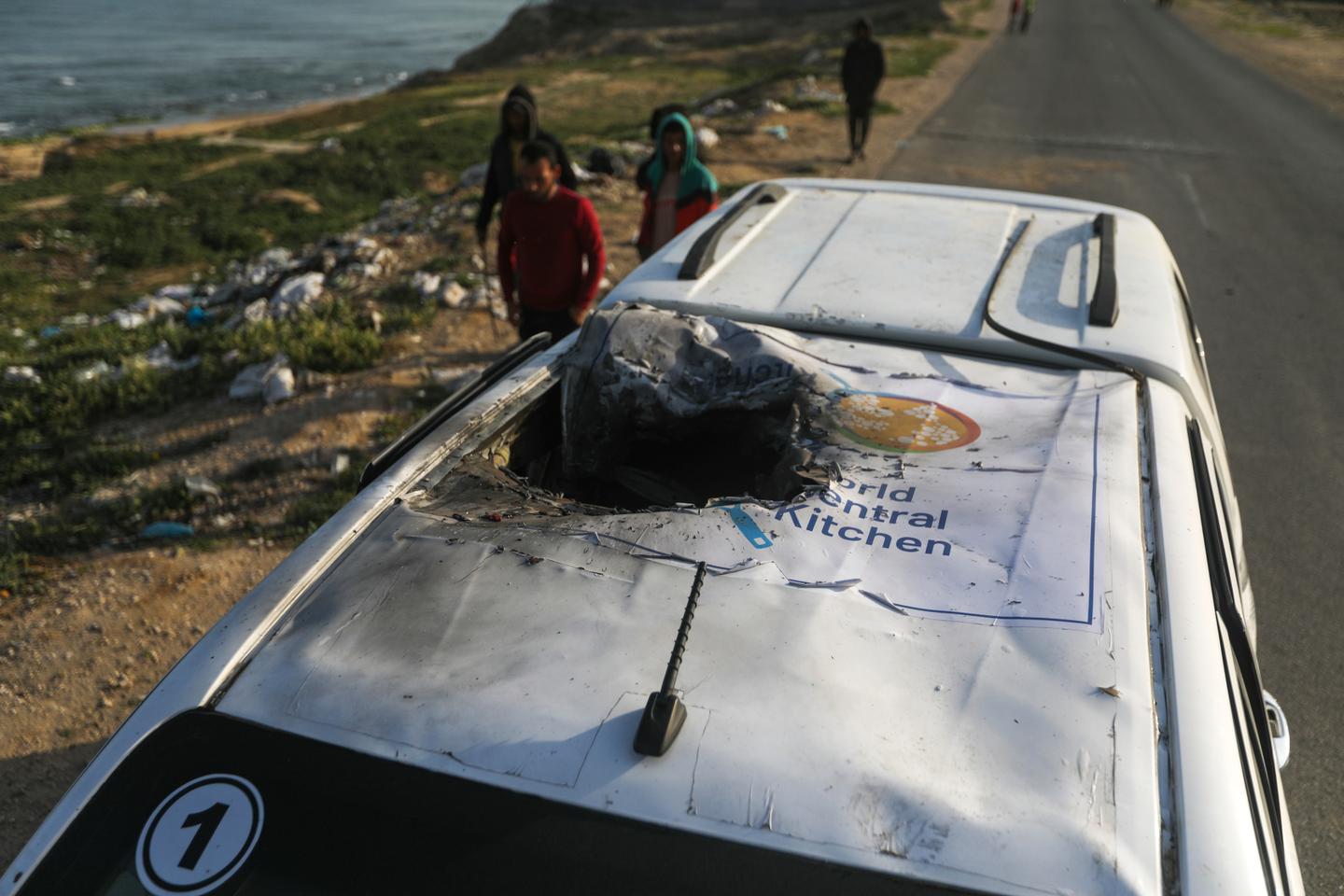


After six months of war, as Israel begins to scale back its military presence in Gaza, the veil is being lifted on the mechanics of the cataclysm that befell the Palestinian enclave. The toll of the Israeli operation launched on October 7, 2023, in response to the massacre and hostage-taking perpetrated by Hamas in the south of Israel, is widely known: 33,175 dead and 75,886 wounded as of April 7, with women and children accounting for around 70% of these victims, according to the Gaza Strip's health authorities. And an undetermined number of bodies, estimated at several thousand, remain buried in the rubble.
What has become clearer in recent days is the modus operandi of this massacre − the making of what human rights defenders consider to be mass war crimes.
The tragedy that befell World Central Kitchen (WCK), a food distribution charity whose seven employees perished in an Israeli strike on Monday, April 1, served as an eye-opener. Because six of the victims were foreign nationals, the Israeli army was held to account. Had they all been Palestinians, like the 200 other aid workers and UN employees killed since October 7, the event would have caused only a relatively minor stir on the international stage.
What did the Israeli military headquarters claim? That the decision to open fire on the WCK convoy was the result of a misidentification: The soldiers of the drone unit carrying out the strikes thought they saw a weapon in the hands of one of the aid workers and concluded, for some reason, that he and all the other passengers were members of Hamas. Hence the drones' persistence, firing three times at the vehicles and eliminating their occupants one by one.
Mea culpa
The said weapon was "possibly a bag," admitted military leaders, confessing to a "grave mistake" and announcing the dismissal of two officers. This mea culpa did not convince Barak Ravid, a former star journalist of the Israeli press and now an analyst with CNN. "To call it a misidentification or a mistake, that's the understatement of the century. And this is not an isolated incident [...] those incidents happen every few days in Gaza," he said on April 3 while speaking to the American channel.
In fact, two investigations published by the Israeli press at the same time suggest that the army's negligence in the WCK case was not so much the product of individual lapses as of a systemic misuse of opening fire procedures. This is a significant departure in Israeli military history, which has turned the Gaza Strip into a gigantic mass grave.
You have 53.95% of this article left to read. The rest is for subscribers only.
